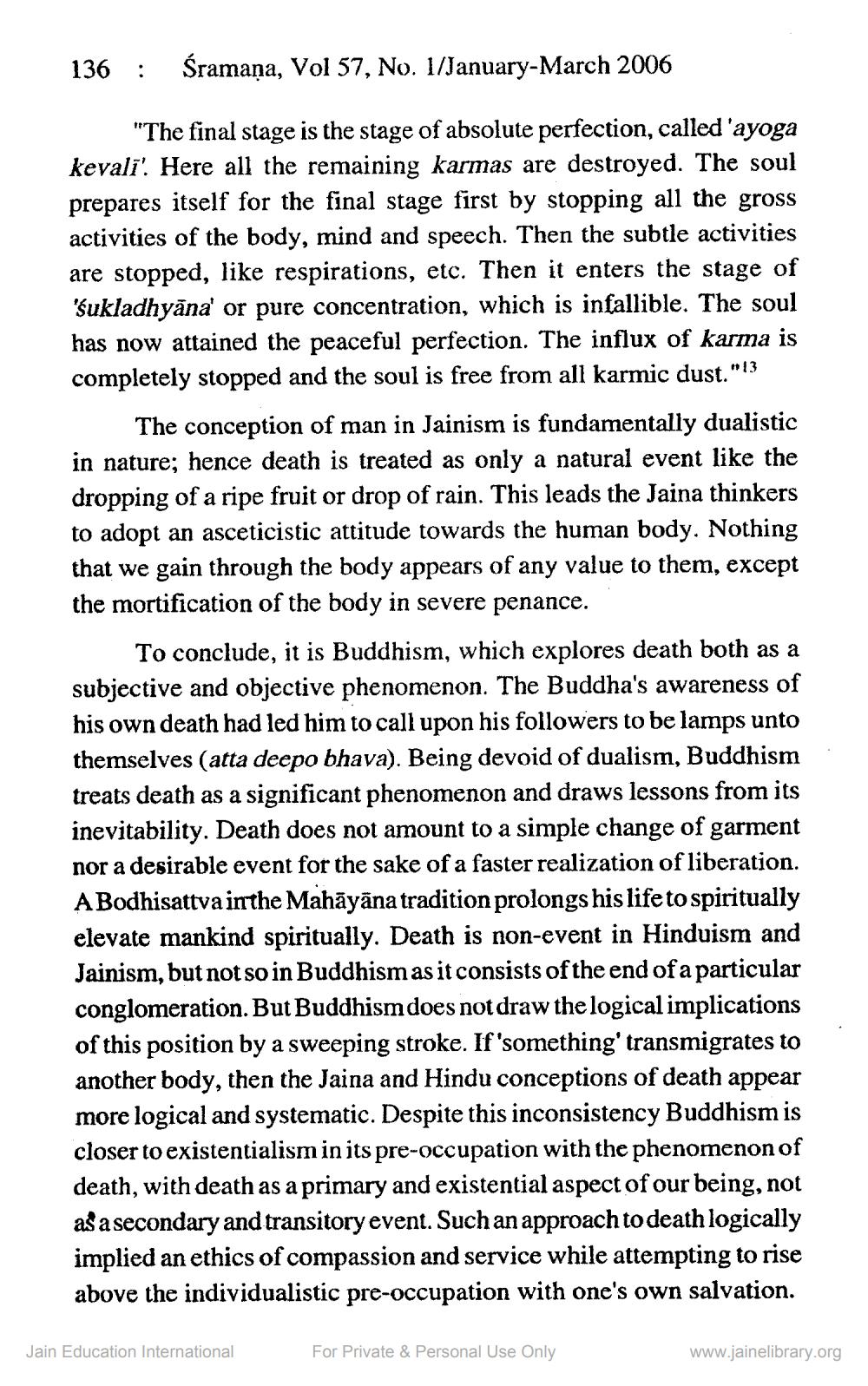________________
136 :
śramaņa, Vol 57, No. 1/January-March 2006
"The final stage is the stage of absolute perfection, called 'ayoga kevals. Here all the remaining karmas are destroyed. The soul prepares itself for the final stage first by stopping all the gross activities of the body, mind and speech. Then the subtle activities are stopped, like respirations, etc. Then it enters the stage of 'śukladhyāna' or pure concentration, which is infallible. The soul has now attained the peaceful perfection. The influx of karma is completely stopped and the soul is free from all karmic dust."!3
The conception of man in Jainism is fundamentally dualistic in nature; hence death is treated as only a natural event like the dropping of a ripe fruit or drop of rain. This leads the Jaina thinkers to adopt an asceticistic attitude towards the human body. Nothing that we gain through the body appears of any value to them, except the mortification of the body in severe penance.
To conclude, it is Buddhism, which explores death both as a subjective and objective phenomenon. The Buddha's awareness of his own death had led him to call upon his followers to be lamps unto themselves (atta deepo bhava). Being devoid of dualism, Buddhism treats death as a significant phenomenon and draws lessons from its inevitability. Death does not amount to a simple change of garment nor a desirable event for the sake of a faster realization of liberation. A Bodhisattva inthe Mahāyāna tradition prolongs his life to spiritually elevate mankind spiritually. Death is non-event in Hinduism and Jainism, but not so in Buddhism as it consists of the end of a particular conglomeration. But Buddhism does not draw the logical implications of this position by a sweeping stroke. If 'something'transmigrates to another body, then the Jaina and Hindu conceptions of death appear more logical and systematic. Despite this inconsistency Buddhism is closer to existentialism in its pre-occupation with the phenomenon of death, with death as a primary and existential aspect of our being, not as a secondary and transitory event. Such an approach to death logically implied an ethics of compassion and service while attempting to rise above the individualistic pre-occupation with one's own salvation.
Jain Education International
For Private & Personal Use Only
www.jainelibrary.org




